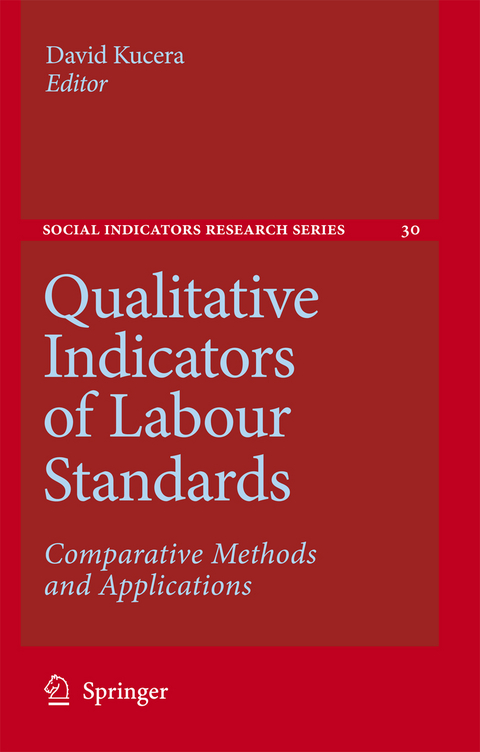
Qualitative Indicators of Labour Standards
Comparative Methods and Applications
Seiten
2010
|
Softcover reprint of hardcover 1st ed. 2007
Springer (Verlag)
978-90-481-7307-5 (ISBN)
Springer (Verlag)
978-90-481-7307-5 (ISBN)
Recent years have witnessed a rapidly growing interest in the use and construction of "qualitative" indicators of labour standards.
Qualitative indicators, while generally having numerical values, are based on such methods as grading by experts, the coding of legislation, and the coding of other textual sources addressing violations of a more de facto nature. Measuring compliance with labour standards is an undertaking intrinsically fraught with difficulty. For there are a number of possible sources of measurement error, both random and non-random, that are unique to such indicators, on top of those that affect qualitative and quantitative indicators alike. The growing use of qualitative indicators of labour standards thus raises a number of questions about comparative methods of construction as well as the appropriateness of particular methods for particular applications. This volume results from a seminar that was organized to address these and related questions.
Qualitative indicators, while generally having numerical values, are based on such methods as grading by experts, the coding of legislation, and the coding of other textual sources addressing violations of a more de facto nature. Measuring compliance with labour standards is an undertaking intrinsically fraught with difficulty. For there are a number of possible sources of measurement error, both random and non-random, that are unique to such indicators, on top of those that affect qualitative and quantitative indicators alike. The growing use of qualitative indicators of labour standards thus raises a number of questions about comparative methods of construction as well as the appropriateness of particular methods for particular applications. This volume results from a seminar that was organized to address these and related questions.
and Overview.- Indicators of Labour Standards: An Overview and Comparison.- Country-level Assessments of Labour Conditions in Emerging Markets: An Approach for Institutional Investors.- Decent Work, Standards and Indicators.- The Quantification of Respect for Selected Core Labour Standards: Towards a Social Development Index?.- Measuring Trade Union Rights by Violations of These Rights.- Taking Labour Laws to the Domestic Dentist: Measuring Countries' Compliance with International Labour Non-discrimination Standards.- Towards an Index of Core Rights Gaps.- Employment Protection in Industrialized Countries: The Case for New Indicators.- Measuring Concealed Rights Violations: The Case of Forced Labour.
| Erscheint lt. Verlag | 22.11.2010 |
|---|---|
| Reihe/Serie | Social Indicators Research Series ; 30 |
| Zusatzinfo | VI, 298 p. |
| Verlagsort | Dordrecht |
| Sprache | englisch |
| Maße | 155 x 235 mm |
| Themenwelt | Recht / Steuern ► Arbeits- / Sozialrecht ► Arbeitsrecht |
| Recht / Steuern ► EU / Internationales Recht | |
| Sozialwissenschaften ► Soziologie ► Empirische Sozialforschung | |
| Wirtschaft ► Volkswirtschaftslehre ► Makroökonomie | |
| ISBN-10 | 90-481-7307-8 / 9048173078 |
| ISBN-13 | 978-90-481-7307-5 / 9789048173075 |
| Zustand | Neuware |
| Haben Sie eine Frage zum Produkt? |
Mehr entdecken
aus dem Bereich
aus dem Bereich
mit den wichtigsten Bestimmungen zum Arbeitsverhältnis, …
Buch | Softcover (2024)
dtv Verlagsgesellschaft
CHF 19,45
Tarifrecht öffentlicher Dienst : Textausgabe
Buch | Softcover (2024)
dtv Verlagsgesellschaft
CHF 33,45


